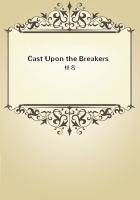That, as proved to their satisfaction, the mail routes from Milledgeville to Athens, and from Warrenton to Decatur, in the State of Georgia (numbered 2366 and 2380), were let to Reeside and Avery at $1300 per annum for the former and $1500 for the latter, for the term of four years, to commence on the first day of January, 1835; that, previous to the time for commencing the service, Reeside sold his interest therein to Avery; that on the a a th of May, 1835, Avery sold the whole to these petitioners, Saltmarsh and Fuller, to take effect from the beginning, January a 1835 ; that at this time, the Assistant Postmaster-General, being called on for that purpose, consented to the transfer of the contracts from Reeside and Avery to these petitioners, and promised to have proper entries of the transfer made on the books of the department, which, however, was neglected to be done; that the petitioners, supposing all was right, in good faith commenced the transportation of the mail on these routes, and after difficulty arose, still trusting that all would be made right, continued the service till December a 1`837; that they performed the service to the entire satisfaction of the department, and have never been paid anything for it except $_____ ; that the difficulty occurred as follows:
Mr. Barry was Postmaster-General at the times of ****** the contracts and the attempted transfer of them; Mr. Kendall succeeded Mr. Barry, and finding Reeside apparently in debt to the department, and these contracts still standing in the names of Reeside and Avery, refused to pay for the services under them, otherwise than by credits to Reeside ; afterward, however, he divided the compensation, still crediting one half to Reeside, and directing the other to be paid to the order of Avery, who disclaimed all right to it. After discontinuing the service, these petitioners, supposing they might have legal redress against Avery, brought suit against him in New Orleans; in which suit they failed, on the ground that Avery had complied with his contract, having done so much toward the transfer as they had accepted and been satisfied with. Still later the department sued Reeside on his supposed indebtedness, and by a verdict of the jury it was determined that the department was indebted to him in a sum much beyond all the credits given him on the account above stated. Under these circumstances, the committee consider the petitioners clearly entitled to relief, and they report a bill accordingly; lest, however, there should be some mistake as to the amount which they have already received, we so frame it as that, by adjustment at the department, they may be paid so much as remains unpaid for services actually performed by them not charging them with the credits given to Reeside. The committee think it not improbable that the petitioners purchased the right of Avery to be paid for the service from the 1st of January, till their purchase on May 11, 1835; but, the evidence on this point being very vague, they forbear to report in favor of allowing it.
TO WILLIAM H. HERNDON--LEGAL WORK
WASHINGTON, January 19, 1848.
DEAR WILLIAM:--Inclosed you find a letter of Louis W. Chandler.
What is wanted is that you shall ascertain whether the claim upon the note described has received any dividend in the Probate Court of Christian County, where the estate of Mr. Overbon Williams has been administered on. If nothing is paid on it, withdraw the note and send it to me, so that Chandler can see the indorser of it. At all events write me all about it, till I can somehow get it off my hands. I have already been bored more than enough about it; not the least of which annoyance is his cursed, unreadable, and ungodly handwriting.
I have made a speech, a copy of which I will send you by next mail.
Yours as ever, A. LINCOLN.
REGARDING SPEECH ON MEXICAN WAR
TO WILLIAM H. HERNDON.
WASHINGTON, February 1, 1848.
DEAR WILLIAM:--Your letter of the 19th ultimo was received last night, and for which I am much obliged. The only thing in it that I wish to talk to you at once about is that because of my vote for Ashmun's amendment you fear that you and I disagree about the war. I regret this, not because of any fear we shall remain disagreed after you have read this letter, but because if you misunderstand I fear other good friends may also. That vote affirms that the war was unnecessarily and unconstitutionally commenced by the President; and I will stake my life that if you had been in my place you would have voted just as I did. Would you have voted what you felt and knew to be a lie? I know you would not. Would you have gone out of the House--skulked the vote? I expect not. If you had skulked one vote, you would have had to skulk many more before the end of the session.
Richardson's resolutions, introduced before I made any move or gave any vote upon the subject, make the direct question of the justice of the war; so that no man can be silent if he would.
You are compelled to speak; and your only alternative is to tell the truth or a lie. I cannot doubt which you would do.















